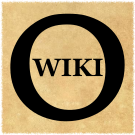World Spirit: Difference between revisions
TTP2Document |
No edit summary |
||
| Line 2: | Line 2: | ||
{{TTP2Document | {{TTP2Document | ||
|file = World_Spirit | |file = World_Spirit | ||
|title = The World Spirit | |title = The World-Spirit | ||
|loc = [[ | |author = Unknown | ||
|loc = [[Wooded_Plateau#LOS_EXT-1|LOS_EXT-1]] | |||
}} | }} | ||
What is it that drives historical processes? It's easy to dismiss the idea of the Great Man (or the Great Woman, for that matter) when clearly so much is determined by resource distribution, pre-existing political structures, and the randomness of the universe itself. | What is it that drives historical processes? It's easy to dismiss the idea of the Great Man (or the Great Woman, for that matter) when clearly so much is determined by resource distribution, pre-existing political structures, and the randomness of the universe itself. | ||
| Line 9: | Line 10: | ||
But is there no space at all for the individual in all this? Are there not moments when, in Hegelian fashion, an individual may represent the world-spirit itself? Was Napoleon "history on horseback" or not? Or is that itself another form of determinism? | But is there no space at all for the individual in all this? Are there not moments when, in Hegelian fashion, an individual may represent the world-spirit itself? Was Napoleon "history on horseback" or not? Or is that itself another form of determinism? | ||
5358 | |||
From Augustus to Napoleon, from Lincoln to Lenin, there are individuals whose actions seem to drive rather than merely be driven by history. They make bold choices, for good or ill, that transform entire societies. Or do they? We like to blame them for their failures, but are they not ultimately just the expression of a historical moment? | |||
5358 | |||
But if they are, where is the space for human agency? | |||
It sometimes seems to me that all of human history has been that one struggle, to carve out a space for free choice against the tides of history, and heroes and tyrants (pick and choose examples as you will) are both equally a reflection of that. Our greater goal, then, ought to be to extend that freedom to the maximum number of people. To become captains of our own fate, as much as that is possible in this universe. | |||
Latest revision as of 11:48, 22 November 2023
World_Spirit is a text document stored in the LOS_EXT-1 terminal.
Contents
The World-Spirit
What is it that drives historical processes? It's easy to dismiss the idea of the Great Man (or the Great Woman, for that matter) when clearly so much is determined by resource distribution, pre-existing political structures, and the randomness of the universe itself.
But is there no space at all for the individual in all this? Are there not moments when, in Hegelian fashion, an individual may represent the world-spirit itself? Was Napoleon "history on horseback" or not? Or is that itself another form of determinism?
5358
From Augustus to Napoleon, from Lincoln to Lenin, there are individuals whose actions seem to drive rather than merely be driven by history. They make bold choices, for good or ill, that transform entire societies. Or do they? We like to blame them for their failures, but are they not ultimately just the expression of a historical moment?
5358
But if they are, where is the space for human agency?
It sometimes seems to me that all of human history has been that one struggle, to carve out a space for free choice against the tides of history, and heroes and tyrants (pick and choose examples as you will) are both equally a reflection of that. Our greater goal, then, ought to be to extend that freedom to the maximum number of people. To become captains of our own fate, as much as that is possible in this universe.
